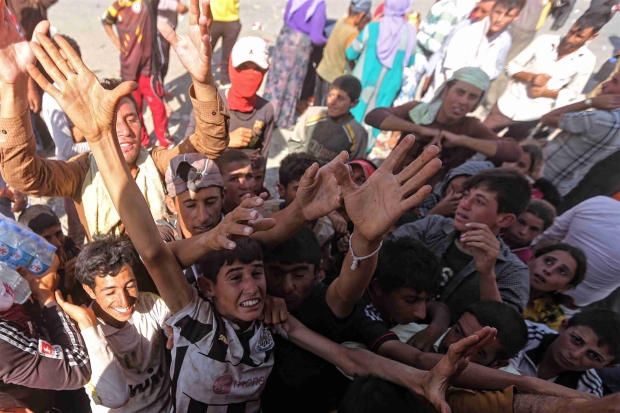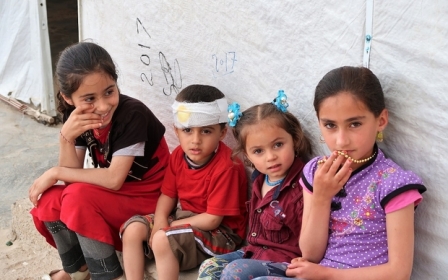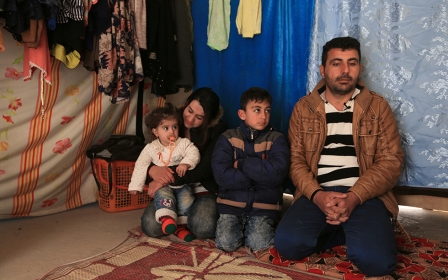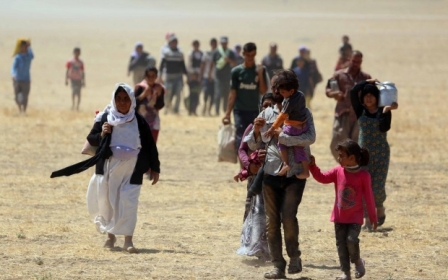After Islamic State: What future for the Yazidis?
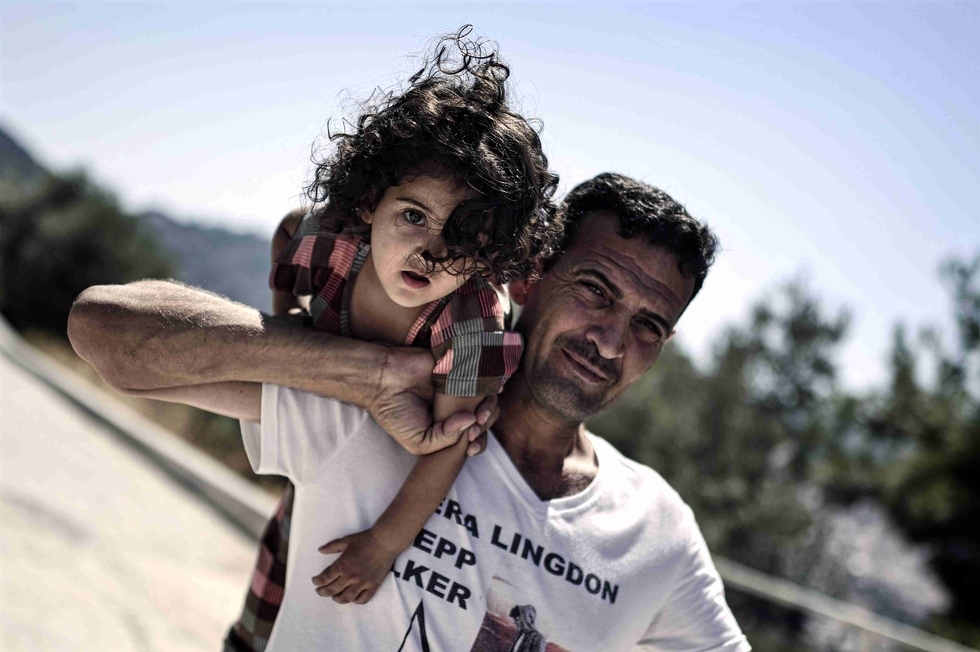
The story of Iraq’s Yazidis is one that rekindles memories of Rwandan killing fields and Bavarian gas chambers. A genocide against the Yazidis has been declared almost unanimously, by everyone from UN councils to US secretaries of state, but despite the international attention their plight has garnered, the future of the minority is uncertain.
The tale of Nadia Murad, a Yazidi who was formerly enslaved by Islamic State and now works as a goodwill ambassador for the United Nations, has attracted the attention of internationally renowned human rights lawyer Amal Clooney.
Yet this is a genocide that is ongoing, with thousands of women still enslaved in Syria and IS’s few remaining pockets in Iraq. As Iraqi government forces begin the battle for Tal Afar, there are reports that hundreds of Yazidis are caught amid a brutal siege.
How Yazidi cause is used by the KRG
The Yazidi homelands of Sinjar and elsewhere are now largely cleared of Islamic State (IS) presence: efforts must shift to what will be their future.
The beleaguered minority increasingly find themselves caught between Kurdish nationalism, which increasingly feels as if it is on the cusp of achieving independence, and a beleaguered Baghdad government, desperately clutching at Iraq’s geographical integrity.
The Kurdish leadership in northern Iraq has, in recent years, been very keen to present themselves and their project for statehood as a natural protector of minorities in the region.
However, what ought to be a naturally empathetic relationship between the Yazidis and the KRG government is anything but.
An ongoing blockade against the Yazidi, orchestrated by northern Iraq's ruling Kurdish Democratic Party (KDP) as a result of ongoing inter-Kurdish disputes, has made normal life impossible.
In the Yazidi homeland of Sinjar, almost 18 months after its recapture from IS, bodies are still rotting beneath the rubble. Reconstruction is non-existent.
Meanwhile their plight has become little more than a political football, a stick with which the Kurdish leadership can beat the Baghdad government and further the cause of independence.
KRG Prime Minister Nechirvan Barzani took this callous hijacking of the Yazidi cause to new heights on 3 August in a speech to mark the third anniversary of the start of the genocide. His speech firmly laid the blame on the Iraqi military for abandoning the Yazidis and other people of Nineveh during the summer of 2014.
What ought to be a naturally empathetic relationship between the Yazidis and the KRG government is anything but
He is right: multiple divisions of the Iraqi army did flee as IS rampaged across northern Iraq, leaving the city of Mosul, Iraq’s second largest, to the jihadists.
But Barzani’s account of IS’s capture of Sinjar is a perverse rewriting of history. In Sinjar, where much of the Yazidi atrocity took place, it was several divisions of the Kurdish peshmerga who abandoned the Yazidis, electing instead to pull back to Kurdish majority areas and mount their defence from there.
The Peshmerga didn’t fire a shot in defence of Sinjar in 2014: as a result, thousands of Yazidis were left without a chance to escape. It remains unclear from where this order came, but it has certainly left the KDP government with a festering sense of embarrassment.
As one KDP source told Middle East Eye: “Embarrassment over what happened in Sinjar in 2014 is why the party has pushed so hard for international recognition of the genocide.”
Young Yazidis are increasingly pushing back against the current drive for independence, instead promoting plans for their own semi-autonomous region within Iraq
Efforts to dodge this responsibility, and honestly investigate what was behind the decision, are exacerbating Yazidi disenfranchisement with the cause of Kurdish independence. As Matthew Barber wrote recently, this episode meant the “trust of the Shingali Yazidis in the KDP was irreparably shattered”.
Nor are attempts at redemption, or support for Yazidi interests, part of the current Kurdish agenda. Young Yazidis are increasingly pushing back against the current drive for independence, instead promoting plans for their own semi-autonomous region within Iraq, separate from the KRG or even some sort of rapprochement with Baghdad.
Increasingly it appears that Iraq’s Yazidi see their only way forward as the creation of an internationally protected autonomous region, as formalised in a plan put forward earlier this year in a joint statement from some of Iraq’s most vulnerable minorities. As Haydar Ezedi, a young Yazidi in Erbil put it, “we just don’t trust Barzani anymore, we won’t put our fate in Kurdish hands again”.
Yazidi fortunes in Baghdad are little better, thanks to the increasing influence of Iranian-backed groups which have little regard for minority rights. There is also the issue of discrimination against Yazidis enshrined in Iraqi federal law. For example; Baghdad legislation prohibits Yazidis from becoming judges. A continuation of the Yazidi’s status quo with the current Baghdad government does not appear a viable option.
The need to go beyond justice
The limited international attention the Yazidi cause does receive is almost universally focused on bringing IS to justice for the genocide.
But, with the jihadists' caliphate project seemingly on the way out, the long-term challenge for the Yazidi comes in the form of negotiating the minefield that Iraq’s domestic politics have become for the group. This is where attention must be focused.
With thousands of Yazidis understandably leaving Iraq and the KRG for new lives in Europe and North America, there is a sense of urgency to the Yazidi predicament. The fewer Yazidi there are in Sinjar, and across Iraq, the weaker the minority's bargaining position is.
The work to build a Yazidi future - whether that lies within federal Iraq, or an independent Kurdish state - must start where the Yazidi past began, the homeland of Sinjar.
- Gareth Browne is a journalist with an interest in current affairs, politics and the Middle East. His work has been featured in VICE, The Daily Mirror and Gulf News.
The views expressed in this article belong to the author and do not necessarily reflect the editorial policy of Middle East Eye.
Photo: Ando Elias Tareq, 36, a Yazidi refugee from Sinjar, holds his yougest daughter in Samos, Greece in 2016 (AFP)
New MEE newsletter: Jerusalem Dispatch
Sign up to get the latest insights and analysis on Israel-Palestine, alongside Turkey Unpacked and other MEE newsletters
Middle East Eye delivers independent and unrivalled coverage and analysis of the Middle East, North Africa and beyond. To learn more about republishing this content and the associated fees, please fill out this form. More about MEE can be found here.



